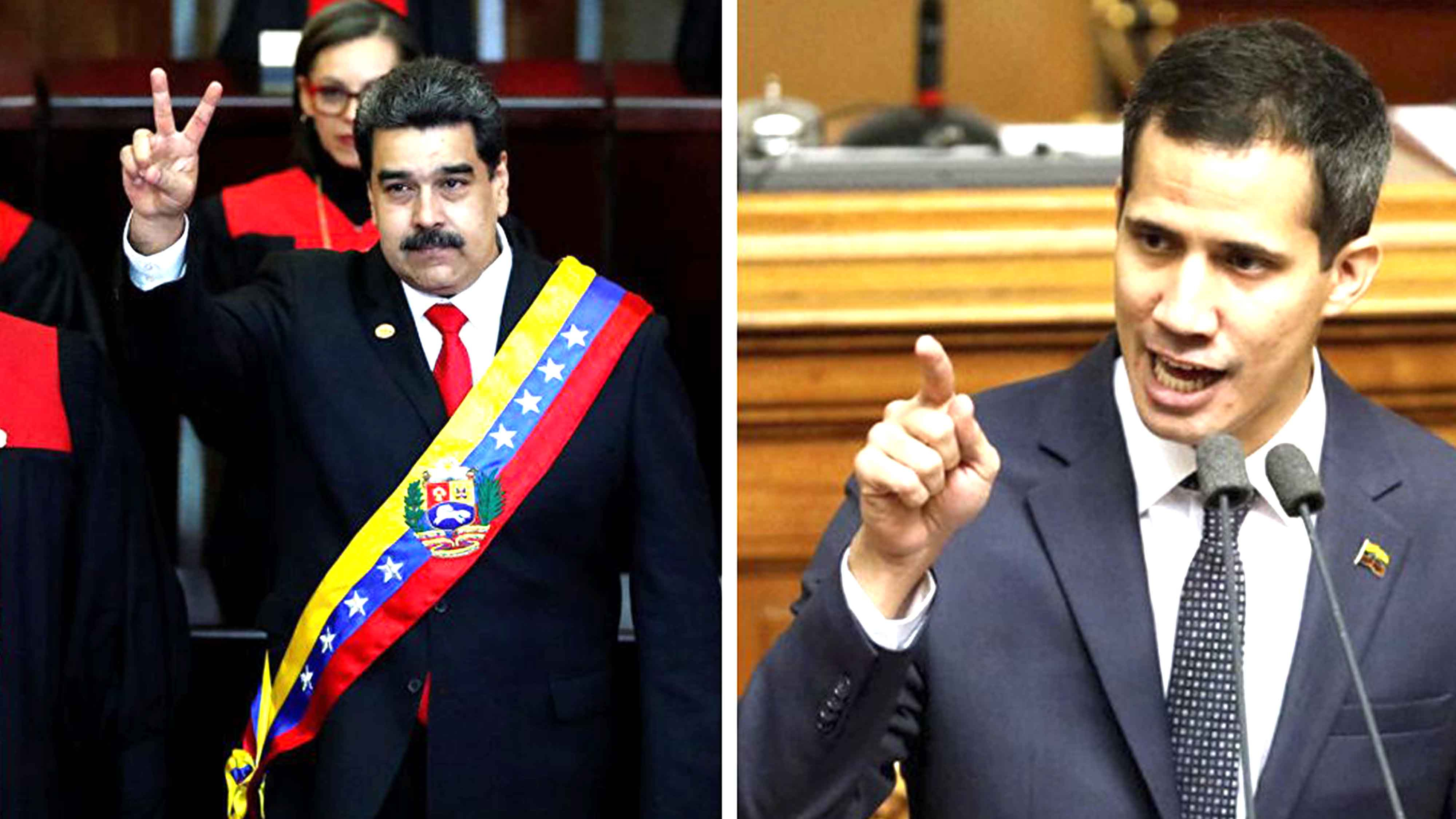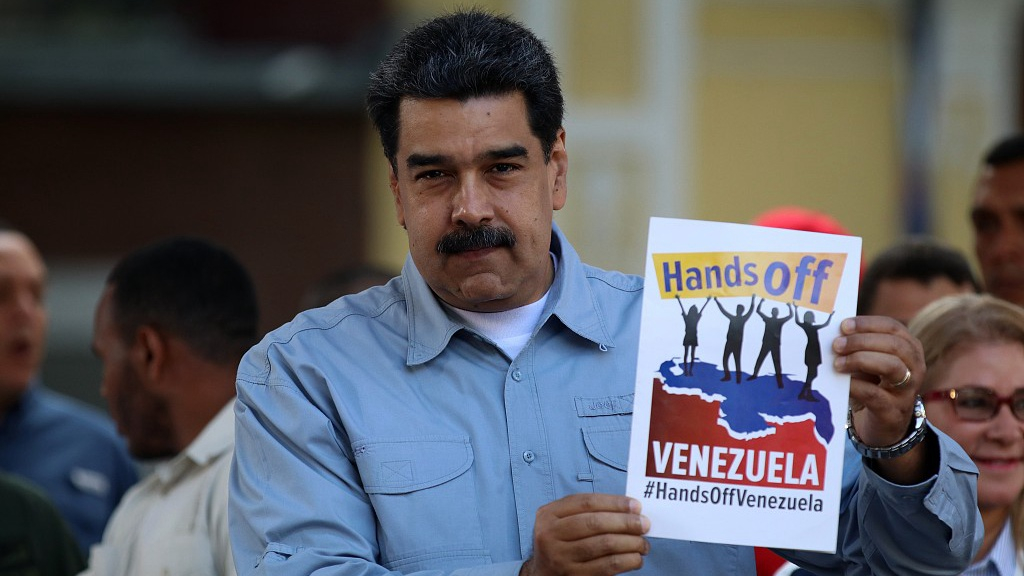
Editor's note: Bradley Blankenship is a Prague-based American journalist, political analyst and freelance reporter. The article reflects the author's opinions and not necessarily the views of CGTN.
The people of Venezuela took to the polls on December 7 to vote in this year's parliamentary elections in what amounted to a referendum in favor of Chavismo, the left-wing program of late former President Hugo Chavez.
Current President Nicolas Maduro's United Socialist Party of Venezuela (PSUV) and other Simon Bolivar Great Patriotic Pole (GPP) coalition parties now have the strongest mandate they've enjoyed in at least half a decade and are set to reinstitutionalize the National Assembly and put an end to foreign-backed destabilization efforts.
Before a single ballot was even cast, Western media were already calling the results in favor of the PSUV and GPP coalition in order to delegitimize the results with unsubstantiated claims of irregularities. Western government officials were lockstep with major outlets on the day of the election in pushing this narrative.
U.S. Secretary of State Mike Pompeo tweeted on Sunday, "Venezuela's electoral fraud has already been committed. The results announced by the illegitimate Maduro regime will not reflect the will of the Venezuelan people. What's happening today is a fraud and a sham, not an election."
Ironically, the administration that Secretary Pompeo represents is going through its own election drama. U.S. President Donald Trump has still refused to concede in the U.S. presidential election that took place over a month ago which he lost by 74 electoral votes and over seven million popular votes.
According to Trump's legal team, Hugo Chavez, who has been dead for over seven years, is connected to a conspiracy to rig the 2020 presidential election. No evidence has ever been produced to support this allegation.
Just as wild and unfounded as that allegation sounds, so too are the allegations of electoral irregularities in Venezuela. The election was independently monitored by foreign observers from across the world and so far none have come forward with any credible allegations. In reality, the opposition was doomed even before the election because of their own failings.
After taking hold of the parliament in 2015, the opposition failed to win hearts and minds. Their agenda has been aimed at fracturing the country's political and economic institutions in order to set the stage for pro-Western regime change and little less.
Antagonizing internal clashes within government, legitimizing armed violence, coup attempts and terrorism have all been key elements for this strategy despite their general claim to be firm democrats seeking a "return to democracy."
To say the least, things have been blunderous for them. Juan Guaido, the self-proclaimed "interim president" of the country who gained wide Western recognition since 2019, boycotted the vote on December 6 along with his allies over claims of "fraud" that were never substantiated.

Venezuelan President Nicolas Maduro makes a speech as he launches signature campaign "Hands off Venezuela" against U.S. intervention threats to Venezuela, at Bolivar Square in Caracas, Venezuela, February 7, 2019. /VCG
Venezuelan President Nicolas Maduro makes a speech as he launches signature campaign "Hands off Venezuela" against U.S. intervention threats to Venezuela, at Bolivar Square in Caracas, Venezuela, February 7, 2019. /VCG
It was clear that Guaido and his allies simply would have lost had they decided to run. Instead, he and his allies will create a parliament while some other opposition members that did run criticized the move as divisive and ineffectual.
This will obviously make his presidential recognition by Western governments and the unity of the political opposition even more untenable going forward. Venezuelan opposition candidate Jose Brito said of Guaido and his allies, "The only thing that interests them is being the internationally-recognized opposition in order to continue [benefiting] off humanitarian aid money."
Unfortunately for Guaido, even if he only gets his legitimacy from the White House and not from voters, he may lose the former simply because of his failure to even try to appeal to the latter.
That is to say that Guaido and his colleagues have done remarkably little to sway public opinion in their favor after a series of embarrassing blunders, which has so far included multiple cartoonish coup and assassination attempts, and Washington has taken notice of this ineptitude.
One such ominous sign came last week when Vanessa Neumann, Guaido's representative to the UK, resigned. The "interim government" headed by Gauido is discussing further cutbacks on day-to-day operations and diplomatic staff, according to a recent Reuters report that quotes nine legislators, owed heavily to the fact that the U.S. Treasury has controls on a lot of their available funds.
After this election, the already-present frays within the Venezuelan opposition have been exposed. Their political project will now wither away and mark a new chapter in Venezuelan politics as Maduro and his allies get back on track to pursue their vision unhindered.
At the same time, Washington and other Western governments will have only fewer options to destabilize the legitimate government of Venezuela now that the pro-West opposition has lost virtually all formal political power.
(If you want to contribute and have specific expertise, please contact us at opinions@cgtn.com.)

